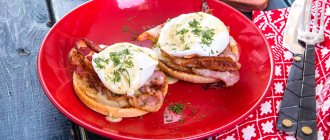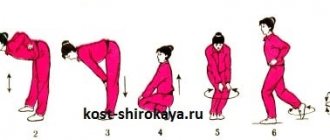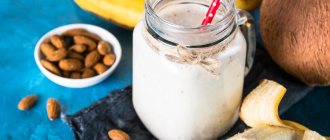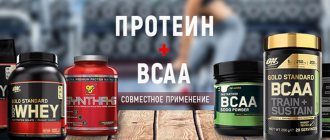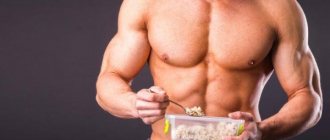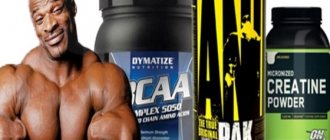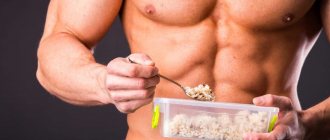The diet of people who regularly practice intense physical activity should be balanced and contain a sufficient amount of slow carbohydrates, proteins, healthy fats, as well as vitamins, minerals, and microelements. Only under this condition will the athlete’s body function adequately and training indicators grow.
Introduction
Speaking of sweets, the first and perhaps the main source is sugar, which is present in one form or another in the vast majority of food products. Moreover, we are talking not only about that loose white powder, which is usually added to tea or coffee, but also about the type of sugar that is invisibly present in various baked goods, candies, drinks, fruits and much more. Sugar is unpopular in bodybuilding for the simple reason that it is a source of fast carbohydrates, which are usually converted into body fat. However, let’s first figure out what it actually is, and then we’ll build on it from there.
Sugar is a natural product of plant origin. Once in the body, it breaks down into the simplest components glucose and fructose, which are then only absorbed into the bloodstream. Glucose, being a source of energy, supplies more than half of all energy processes occurring in the body. In particular, it has a great influence on the functioning of the brain. When glucose levels in the body decrease, concentration decreases, mood drops, lethargy appears, and you begin to yawn. By the way, if you have ever wondered why you yawn during strength training in the gym, then know that this is due to the depletion of the body’s energy reserves, which is a signal that it is time to restore them, that is, to eat.
So, sweets when playing sports help replenish the body’s energy reserves. This is the first thing you need to understand when it comes to sugar-containing products. At the same time, as we said above, if you do not consume sugar in its pure form, this does not mean that it is not present in your diet. It often happens that when losing weight, in pursuit of the desired centimeters of waist or kilograms of weight, a person removes sugar from the diet, but at the same time loads up on vegetables, fruits, dried apricots, prunes, raisins and other foods that contain glucose, fructose and sucrose. . That is why such cases occur when, having given up all the “obviously” sweets, the “unobviously” sweets do not allow the numbers on the scales to indicate weight loss.
What sweet foods can you eat while working out?
It is important to pay attention to the fact that when playing sports, some sweet foods may be appropriate, which will bring more than just extra calories to the body. These sweets contain substances that are beneficial to the body. One of these products is honey, a gift from beekeeping. We are talking only about natural honey. Counterfeits don't make any sense.
If you are a chocolate lover, then you can safely consume dark chocolate. However, it must contain at least 70% cocoa. Eating chocolate with a lower percentage of cocoa is pointless and even harmful. The optimal portion per day is 30g.
Marshmallows, marmalade, marshmallows and dried fruits would also be appropriate.
Would you like to try a delicious dessert, but are you afraid of your figure? No need to worry, just place an order on our website trawa-moskow.ru. Our desserts consist of natural plant products. Call our consultant at number.
How the body manages sugar
According to its chemical structure, sugar is the simplest carbohydrate, which is a chemical compound of carbon, hydrogen and oxygen in a certain ratio. Glucose, fructose and sucrose are so-called simple sugars or, as they are commonly called, monosaccharides. Sucrose, in turn, is a disaccharide, that is, it contains one molecule each of fructose and glucose. Now let's figure out what to do with this information. The fact is that digestive enzymes in the body are responsible for the decomposition of all carbohydrates entering the body into glucose, which affects blood sugar levels. So, regardless of what carbohydrates you consume, simple or complex, their primary function in any case will be to supply the body with energy.
Unsystematic and frequent intake of large amounts of simple carbohydrates overloads our body. These carbohydrates very quickly, although briefly, have an effect on blood sugar levels, which in turn eliminates the feeling of hunger. After the short-term effect of fast carbohydrates wears off, the body becomes active again in search of longer-lasting sources of energy to satisfy the feeling of fullness. Problems begin when he cannot find sources of complex carbohydrates.
In this situation, he begins to consume auxiliary nutritional components as a source of energy - fats and, above all, proteins, which, in principle, are not intended to act as energy sources. Why is this a problem? Because proteins are the building blocks of our muscles, so the feeling of hunger is an indicator of the destruction of muscle tissue. So it turns out that sweets in bodybuilding, when consumed in excess, lead to the formation of fat deposits, and starvation leads to loss of muscle volume. And how to achieve balance in this matter, read the article “Principles of Proper Nutrition.”
How many hours before the start of classes can I eat?
As mentioned above, eating should be done at least 1.5-2 hours before the start of the workout. In some cases, when an athlete's metabolism is slow, food should be taken 3 hours before the start of training. In any case, before starting your workout you should feel light and your stomach should not be full. Otherwise, all the blood in the body will accumulate in the stomach area, and energy will be spent on digesting food, and the body’s resources will simply not be enough for effective physical activity.
Digestion time of food
The question of how long before training you should eat is closely related to the time it takes for food to be digested in the body.
The food we prepare for consumption cannot be digested unchanged. In order for food to be digested and used for construction needs and energy costs, the body needs to spend a sufficient amount of time and effort. With the help of the digestion process, the human body is able to obtain building protein from amino acids of digested food, fat from fatty acids and glycerol, and the body transforms glucose into energy and stores it in the liver in the form of glycogen.
Digestion of food in the human body occurs under the influence of many factors. The chemical composition of the food consumed, the type and duration of cooking, the amount eaten, diet, state of the gastrointestinal tract - all this affects the degree of digestibility and time of digestion of food.
© nenetus — depositphotos.com
The influence of heat treatment on the digestibility of products
So, how does heat treatment of food affect the rate at which it is absorbed by the body? Here's some important information for you:
- The digestibility of protein increases significantly when it is heated, as partial destruction of the structures of the protein molecule occurs (denaturation), which in turn leads to better breakdown of proteins by gastric enzymes.
- When animal fat is heated, its energy value is partially lost as it is rendered out of the product. When cooking fatty meat, more than 45% of the fat goes into the broth.
- Vegetable fat also undergoes chemical changes when heated. When deep-frying foods, thermal oxidation of vegetable oil occurs, and toxic compounds settle on the surface of the fried food.
- Heat treatment of potatoes helps convert the protopectin contained in it into a more digestible form - pectin. Excessive acidity can interfere with this process, so sauerkraut or other acidic product should be added to the soup after the potatoes have already been cooked.
- Raw starch cannot be absorbed by the body at all, so potatoes and Jerusalem artichokes must be subjected to heat treatment.
- Sucrose, contained in fruits and berries, is converted into glucose and fructose under the influence of temperature and acids.
Digestion time for main foods
To make it easier for you to decide which foods and how long before training you can eat, use the table below. It indicates the time it takes for the human stomach to digest certain types of food.
| Product | Digestion time |
| Water | Enters the intestines instantly |
| Fruit and vegetable juices | 10-15 minutes |
| Vegetable broth | 10-15 minutes |
| Fruits and berries that contain a lot of water | About 20 minutes |
| Grapes, orange, grapefruit | 30 minutes |
| Vegetables and salads without adding oil | 35-40 minutes |
| Apples, pears, peaches, bananas | 40 minutes |
| Cabbage, zucchini, corn | 45 minutes |
| Eggs | 45-60 minutes |
| Vegetable salads dressed with oil | 55-60 minutes |
| Fish | 60 minutes |
| Starchy vegetables: potatoes, Jerusalem artichoke | 90-120 minutes |
| Cereal porridges: rice, buckwheat, millet and others | 120 minutes |
| Legumes | 120 minutes |
| Dairy and fermented milk products | 120 minutes |
| Poultry: chicken, turkey | 2.5-3 hours |
| Pumpkin and sunflower seeds | 3 hours |
| Nuts | 3 hours |
| Beef | 4 hours |
| Mutton | 4 hours |
| Pork | 5.5 – 6 hours |
Along with the digestion time of food, a significant factor is the degree of its digestibility. For example, food of animal origin (proteins and fats) is absorbed in the body by approximately 90%. Fiber and food of plant origin are absorbed by the body on average by 60%, if the food is mixed - by 80%.
Egg white is considered to be the standard for food digestibility. It is absorbed in the body by approximately 98%. The high degree of digestion of egg white can be explained by the fact that the egg itself is a single cell and there are no intercellular spaces or connections in its structure. The same cannot be said about meat, since in order to digest meat protein, the body requires additional enzymes to “break” and digest these intercellular connections.
Recipes for healthy eating
Hungarian beef goulash
- 5.9 g Protein
- 3.5 g Fat
- 4.6 g Carbohydrates
- 72.2 kcal
70-100 min.
- #wine
- #second course
- #beef
- #goulash
- #dietary
- #low calorie
- #dinner
- #roasting
- #olive oil
- #onion
- #rosemary
- #celery
- #thyme
- #dinner
Other recipes
Sugar in bodybuilding
Many people have the idea that eating sweets and exercising is okay if you do it with the goal of refueling the body with glucose after exercise. Some even take sweet water with them to training, while others, by the way, take salted water, but that’s not what we’re talking about now. The point is that sugar or its substitutes very often do not contain any vitamins or minerals that contribute to its metabolism in the body. For this reason, it would be much preferable to replenish the electrolyte and energy balance with sources of fructose - fruit or honey.
Among other things, sweets during sports, as well as without physical activity, provoke a surge in insulin levels in the blood, and the body is not able to store glucose in the form of glycogen in the liver or, for example, muscles. So it turns out that when the glycogen depot is clogged to the limit, it is not advisable to eat sweets, since the sugar in them will go into fat deposits on the sides and abdomen. At a time when muscles are exhausted, that is, when glycogen reserves in the body are minimal, eating sweets can refuel your body with energy, thereby activating the processes of synthesis of protein structures and starting the recovery process.
What do we end up with? After performing physical activity, the body really needs to replenish its glucose reserves and for these purposes you can actually use sugar and various sweets, but a more preferable option would be to consume fructose, which is found in sufficient quantities in fruits such as banana, pear, apple and more . Moreover, it is advisable to first activate the rise in insulin levels, approximately in the first 15 minutes after completion of the workout, and then after another 15 minutes to supply the body with building materials. Fruits can be used as a tool to raise insulin levels; a protein shake or amino acids are suitable as a source of building materials for muscles.
What fruits and sweets are common among athletes?
Fruits such as bananas and kiwi are often consumed. Cherries are popular among berries.
Bananas. They contain a huge amount of protein, which is very important for those who play sports.
Kiwi. This fruit is rich in collagen. This is necessary for ligaments. Kiwi will help strengthen connective tissues in the body and increase the performance of the joint-ligamentous apparatus.
Cherry. Natural analgesic. If you watch your figure and exercise, then you should not eat cakes and other confectionery products. It is better to replace them with sweets such as marmalade, jelly, marshmallows. They are products suitable for dietary nutrition.
However, sport is not incompatible with sweets in all cases. Sweet foods can restore energy reserves during training. Slow carbohydrates are not always helpful in this regard. The main thing in eating sweets is moderation and a reasonable approach.
Sweets in bodybuilding
In general, when it comes to sugar-containing foods, you need to understand that consuming them in excess always causes the body to switch from burning fat to storing it. After active cardio training, energy reserves are depleted much more than after strength training, and in this case, the best option for replenishing wasted energy would be to consume a protein-carbohydrate mixture, the so-called gainer. In addition to training, activating your insulin levels is also necessary immediately after you wake up. During this period of time, the intake of proteins and carbohydrates is extremely important, and the latter can be presented in the form of sugar, sweet water or other sweets. Although you need to take into account that you need an order of magnitude less “sugar” in the morning than after an intense workout.
Another reason why sugar and sweet water are somewhat popular in bodybuilding is the widespread use of the sports supplement creatine. The thing is that increased insulin levels contribute to a more efficient and rapid release of creatine into the muscles. By the way, no less important is the fact that the more crushed the creatine particles are, the lower the sugar concentration in one serving of liquid should be. Simply put, the micronized form of a creatine supplement requires significantly less sugar to be absorbed. So if you use creatine in your exercises, keep in mind that it is recommended to take it with sweet water or, for example, grape juice. So, let's list the cases when you can take sweets in bodybuilding:
Right after sleep. As we have already found out, long-term overnight fasting greatly depletes the body’s energy reserves, which in turn requires their rapid replenishment after waking up. Breakfast is rightfully considered the main meal of the day, since it is on the one hand that it makes up for the losses of the past day and fills the body with energy for the coming one.
Half an hour before training. At the same time, eating sweet foods should occur after eating protein foods, if you do not have the opportunity to fuel your body with complex carbohydrates. This method of eating is considered the most optimal and literate. Eating sweets before a bodybuilding workout helps fuel the body with energy for work.
During training. To be more precise, in intervals or periodically during training. This must be done based on considerations of restoring the reserves of glucose consumed during training, including to restore electrolyte balance and tone. Sweet water during training is even more common than isotonic drinks.
Immediately after training. Sweet sources of fast carbohydrates are used immediately after the end of the workout in order to restore the energy lost during the workout as quickly as possible. As we already know, after its end, these reserves must be restored, first with sources of fast carbohydrates, and then with protein products.
What to eat to lose weight?
If the goal of training is weight loss, then the list of foods allowed for consumption before training should be reduced. You especially need to remember the “golden rule” of losing weight: calorie consumption should exceed their intake into the body. The pre-workout diet of an athlete who wants to lose weight should not contain high-calorie foods: simple carbohydrates and excess fat. It is allowed to consume only small amounts of complex carbohydrates (no more than 15-20 grams per serving), as well as a sufficient amount of protein (about 20-30 grams per serving). At your own discretion, you can choose one of the proposed dish options:
- A small piece of chicken baked in the oven with buckwheat or wild rice;
- A small portion of white lean fish, steamed with brown rice;
- 2-3 poached eggs or omelet of 2 eggs with cottage cheese and herbs;
- Small veal steak with baked jacket potatoes.
Eating food before training should not interfere with full-fledged exercise, so it is advisable to eat at least 1.5-2 hours before physical activity. However, do not neglect eating before training, since without nutrition you will not be able to train intensely and effectively.
Sweets for bodybuilding
In fact, every time after finishing your workout, you can consume various sweets to restore the energy you expended. Most often, the following desserts are used for these purposes: carbohydrate bars, natural yoghurts, freshly squeezed juices, fruits, carbohydrate or protein-carbohydrate mixtures. If we talk about fruits and berries, the healthiest, and therefore the most popular, are bananas, apples, pears, and including cherries. Variations of various sweets with these fruits and berries are also possible - juices, fresh juices, smoothies, yoghurts and more. In addition to carbohydrates, bananas contain a large amount of protein. Kiwis, for example, are rich in collagen, which is so necessary for ligaments and joints. Cherry juice is an excellent natural analgesic. Papaya helps accelerate the breakdown of proteins in our body.
When it comes to confectionery, it is certainly necessary to exercise restraint and moderation. Under no circumstances should you indulge in cakes, pastries or eclairs with custard, much less buttercream. Try to replace these excessively high-calorie sweets with sesame halva, apple marshmallow, marmalade, marshmallows or jelly. Marmalade is considered a dietary product. It contains a moderate amount of calories as it is made primarily from fruit juices. Jelly is a source of healthy collagen. Marshmallows and marshmallows help strengthen the immune system, which indirectly contributes to muscle gain. But the use of such a popular dessert as ice cream should still be avoided. Also worth mentioning are dried fruits, chocolate and honey.
Dried fruits. Most of them contain B vitamins, as well as potassium, magnesium, sodium, iron and iodine. They are also beneficial due to their coarse fiber. As for dried apples and pears, they are equivalent in nutritional value and benefits to dates and papaya. Moreover, pears have the ability to remove heavy metals from the body, and apples contain the rare but quite useful element boron.
Chocolate. This sweet contains substances from a number of flavonoids that are extremely beneficial for the heart and blood vessels. A substance called tannin in its composition stimulates the digestive system and also helps remove toxins from the body. Potassium and magnesium present in chocolate for bodybuilding are of particular value, as they help stimulate the body’s muscular and nervous systems, and glucose stimulates mental work.
Honey. This food product contains glucose and fructose, as well as minerals such as potassium, calcium, magnesium, sodium, iron and more. Honey contains vitamins B1, B2, B3, B5, B6 and vitamin C. It is simply impossible to describe its benefits for the body of both an ordinary person and a competitive athlete, the list of its beneficial properties is so large. You can eat it in the morning, during the day and in the evening, both on training days and on regular ones.
What to eat to gain muscle mass?
Now that we have a general idea of what you can eat before exercise, it’s worth taking a closer look at which foods will be beneficial before physical activity, and which should be excluded from an athlete’s diet.
When considering the benefits of consuming certain foods before training, we must not forget about what goal a particular athlete is pursuing. If the goal of training is to gain muscle mass, then the quantity and quality of food before exercise is of paramount importance.
A pre-workout meal aimed at gaining muscle mass should consist of a portion of high-quality protein (at least 20-30 grams) and complex carbohydrates (50-60 grams). Depending on your preferences, you can choose one of the proposed dish options:
- a small piece of chicken (or turkey) with pasta made from durum flour (the side dish can be replaced with brown rice or grain bread);
- a piece of lean fish with potatoes (or brown rice);
- lean beef steak with durum pasta or buckwheat;
- omelette of 3-4 eggs with buckwheat (or other porridge);
- a portion of cottage cheese with wholemeal bread (you can add some fresh berries and a couple of teaspoons of honey to the cottage cheese).
© BestPhotoStudio — depositphotos.com
Extra pounds from diets
Often people try to combine exercise in the gym with a variety of diets. Mainly those that greatly limit the caloric content of the diet - they are very popular today. However, modern sports nutrition specialists do not approve of such “traditions” at all. When a person sharply reduces calorie intake and begins to eat less than he needs to cover daily energy costs, his weight naturally decreases. But once the desired result is achieved, the kilograms quickly return. However, you should not fast during the day
.
Korochkin explains: human metabolism is designed in such a way that food intake should occur several times a day. If you are in a state of hunger for 8-10 hours while you are awake, the body adjusts its work to store an additional supply of nutrients. It turns out that everything eaten is not used to provide energy for the body, but is used as a reserve. After all, the body does not know when the next time it will receive the next portion of food. The best choice
for those who are going to lose weight by playing sports is split meals. If you eat 5-6 times a day, the body does not have time to get hungry. Therefore, he spends calories in the required amount without storing them in reserve.
